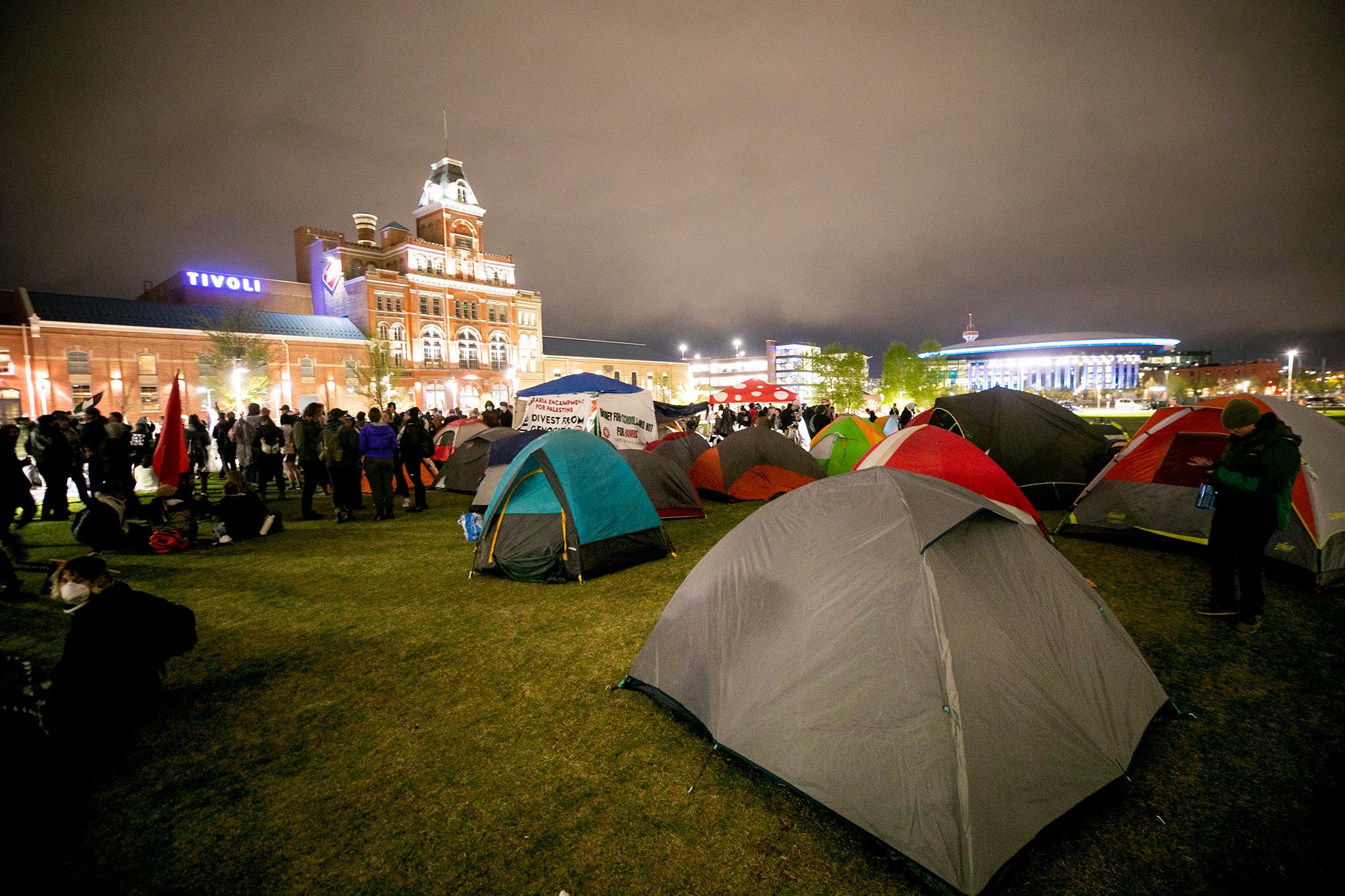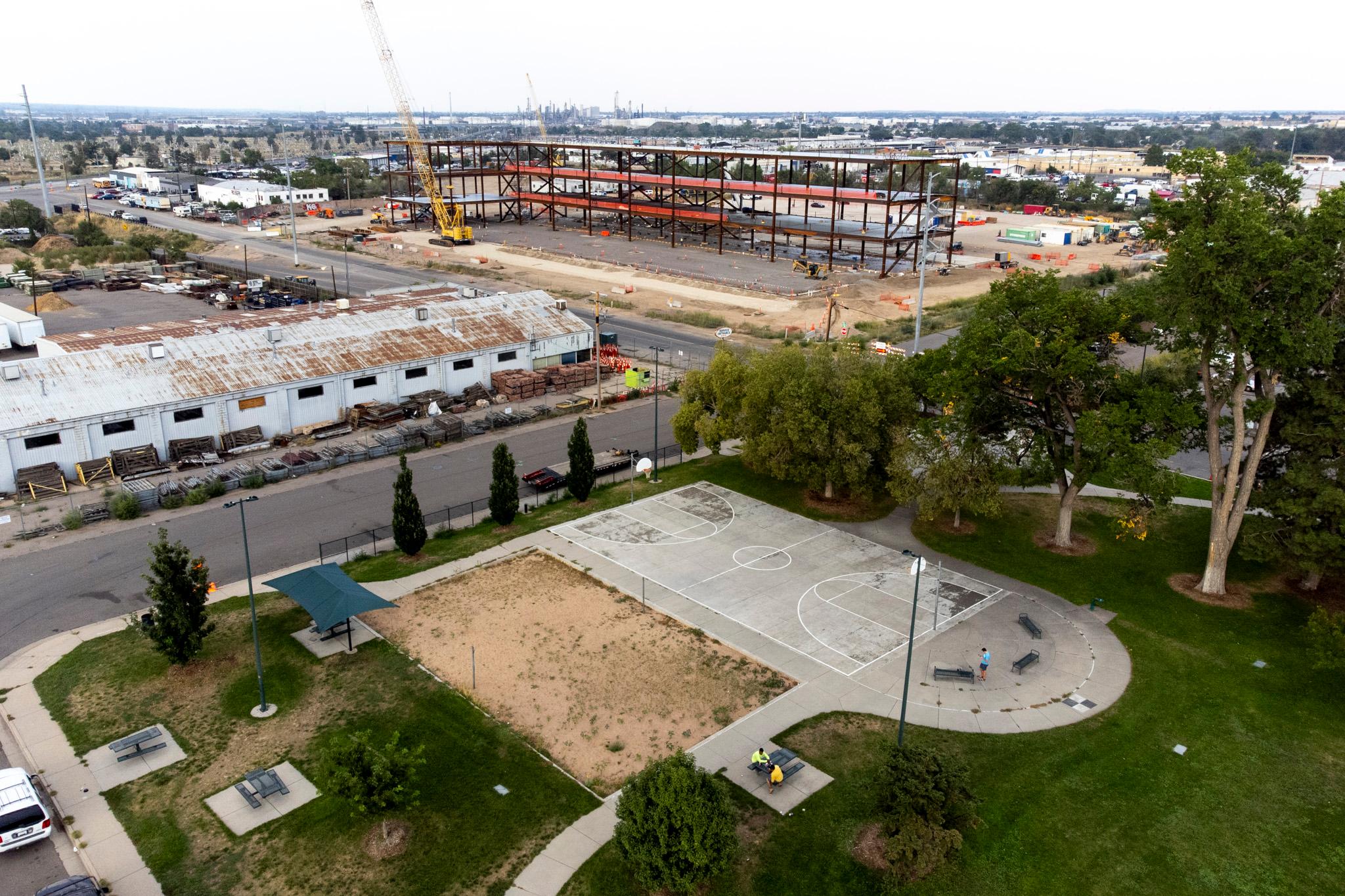Denver’s Auraria Campus and the three universities that call it home will be subject to a federal review into possible antisemitism on campus.
On Thursday, the Colorado Advisory Committee to the U.S. Commission on Civil Rights approved a study into the topic. The committee is made up of 10 members appointed to four-year teams. Many members of the current committee are lawyers in Colorado.
Metropolitan State University of Denver, the University of Colorado Denver and the Community College of Denver are all based on the Auraria Campus.
“This Committee’s proposal seeks to examine the nature, prevalence, and impact of antisemitism on college campuses in the current context. By disentangling overlapping issues, this study aims to contribute to more informed approaches to federal, state, and education policy in higher education,” the proposal said.
The committee, chaired by enrolled Navajo Nation member Alvina Earnhart, will produce a report that may include recommendations for legal and policy changes.
Centered in the proposal is the anti-war camp that was erected last April. Student protesters organized the camp in protest of Israel’s ongoing war in Gaza and made demands to university leaders that they believed would aid humanitarian efforts underway in Palestine.
The proposal characterized the protest as antisemitic and claimed “participants chanted slogans calling for the extermination of the State of Israel and for terrorist attacks on Jews globally,” citing unspecified news reports.
Zionist Jewish groups and campus officials characterized actions by protesters as crossing into antisemitic territory. On May 7, 2024, MSU Denver officials wrote that they witnessed an increase of “antisemitic language and messages appearing on campus property,” citing on-campus vandalism. Student organizers have continually denied the accusations.
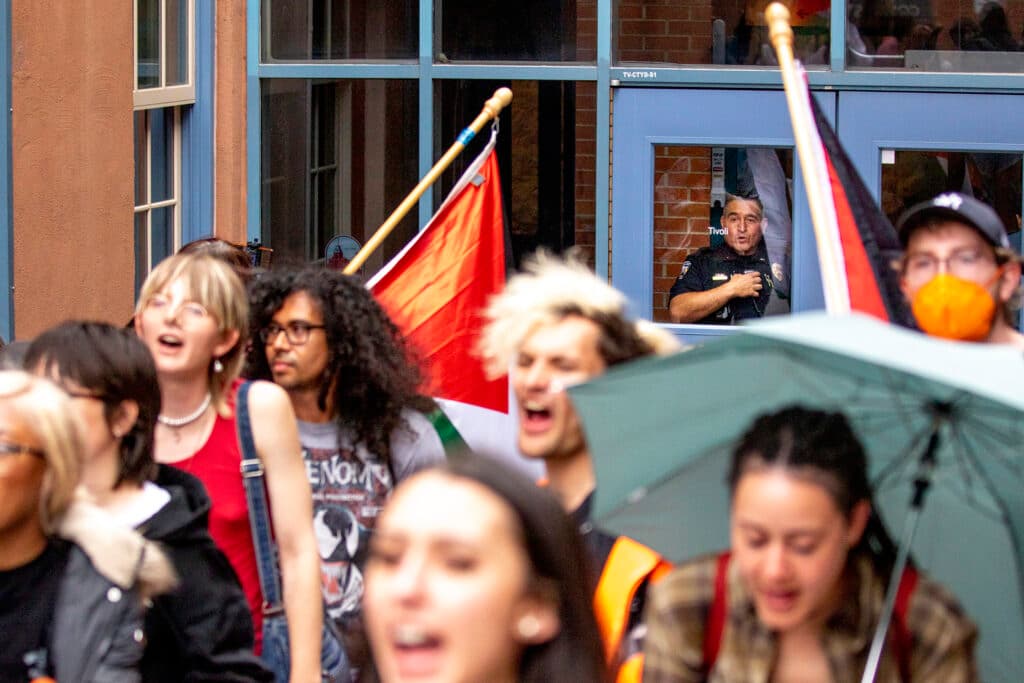
“We hosted Shabbats and we hosted Jewish religious events,” student organizer Lucia Feast said in a recent interview with Denverite. “[Jewish Voices for Peace] and other Jewish communities and community members were very present and very integral to the success of the camp and very supportive of the encampment.”
Several people associated with Jewish Voices for Peace, an anti-Zionist advocacy organization, attended Thursday’s meeting and disavowed any claims of antisemitism at the camp, adding that they felt safe and welcome.
The Auraria Campus said it and its three institutions remain “committed to fostering an inclusive, respectful, and safe environment for all members of our campus community.”
How will the committee investigate claims of antisemitism?
In a methodology outlined in the proposal, the Colorado Advisory Committee — a local subcommittee of the U.S. Civil Rights Commission — will gather data, documents and opinions to reach “factual determinations.”
People who wish to submit testimony about their experience on campus will be able to do so through written comment, an online survey and currently unscheduled in-person meetings.
The committee will use three questions to guide its review:
- What are university and college campus policies around antisemitic discrimination?
- How did university and college administrators address recent incidents of antisemitism?
- How are antisemitic incidents documented and/or reported?
A report will be issued at the end of the review, but it isn’t clear if it will result in any policy changes.
‘The deliverable may include recommendations to the Commission for federal, state, or higher education policy or statutory changes,” the proposal said.
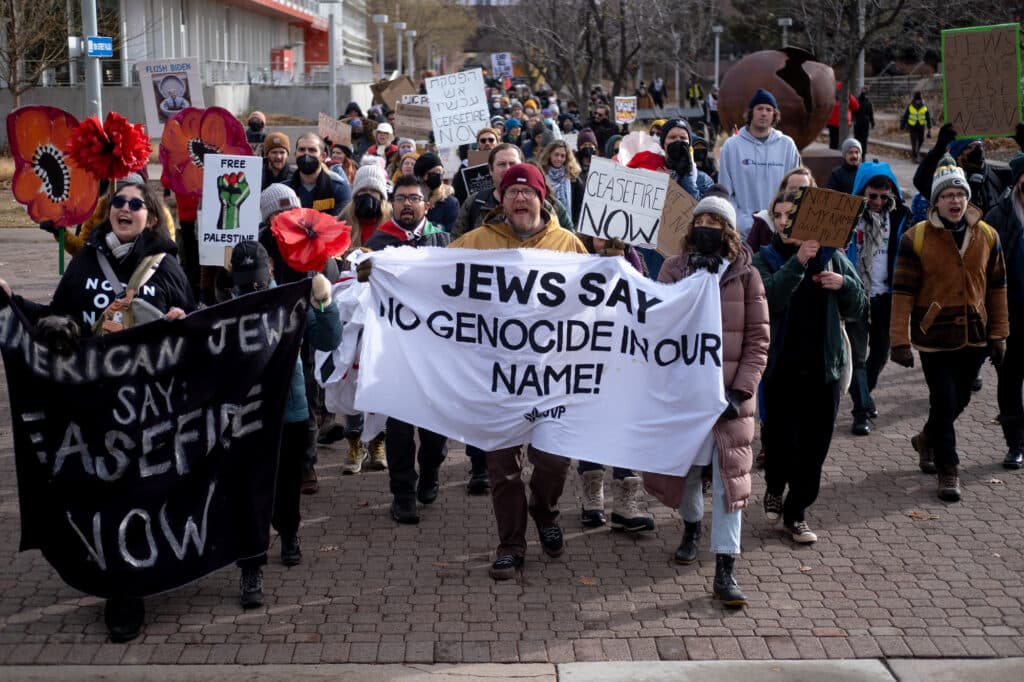
The definition of what constitutes antisemitism has been debated in recent years. When Elon Musk appeared to give a Nazi salute during President Donald Trump’s inauguration event, while many denounced it as an antisemitic gesture, the Anti-Defamation League described it as “an awkward gesture” and not a Nazi salute.
The ADL also has said that “harsh rhetoric related to Israel can create environments in which some Jews feel unsafe, and can even embolden acts and expressions of antisemitism.”
Pro-Palestinian protesters targeted by the Trump Administration.
Protests have rocked college campuses across the country, most notably in the months right after Hamas’s attack on Israel in October 2023, when students voiced their opposition to Israel’s invasion of Gaza by taking over offices, buildings and quads.
Republicans in Congress have continued to put a spotlight on those protests, even as they have largely faded away, arguing they are antisemitic.
This week, leaders from Haverford College, DePaul University and California Polytechnic State University testified in front of the House Committee on Education and Workforce, in a hearing titled “Beyond the Ivy League: Stopping the Spread of Antisemitism on College American Campuses.”
The latest congressional hearing also comes after leaders from Columbia University in 2024 and presidents of Harvard University, the University of Pennsylvania and Massachusetts Institute of Technology in December 2023 also faced hours-long grillings from the panel.
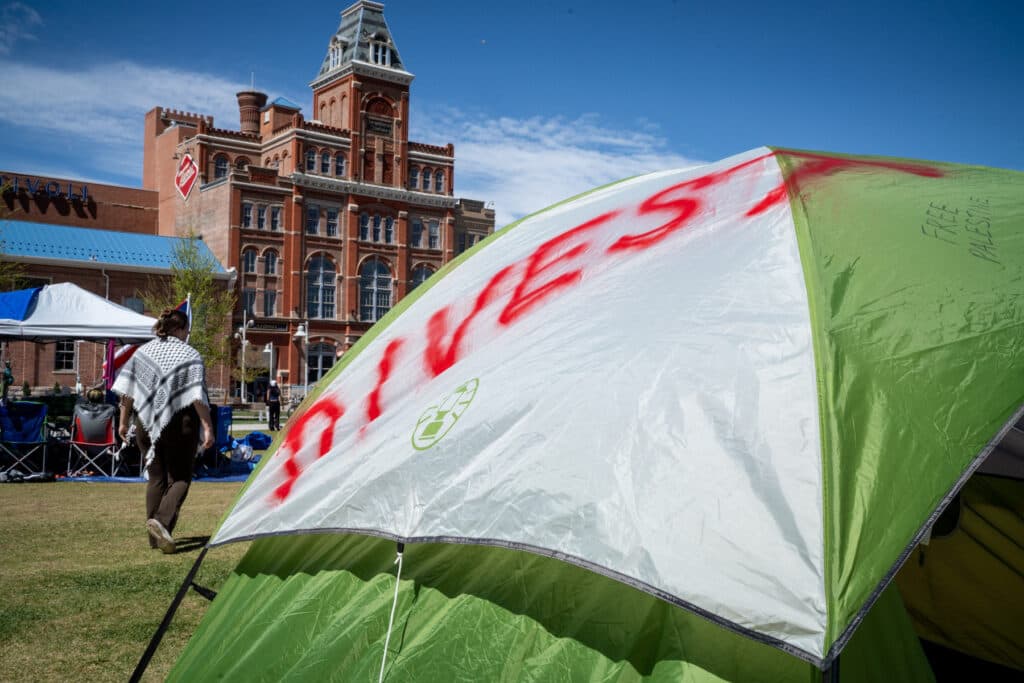
The Republican majority threatened to withhold federal funding from higher education institutions that don’t cooperate.
The Trump administration has also cracked down on protests and protesters, including an executive order to remove international students involved in pro-Palestinan protests. And like congressional Republicans, Trump also said on social media in March that he would stop federal funding to colleges and universities that allow “illegal protests.”
More broadly, Republicans are attacking colleges and universities they argue are promoting “woke” or leftist agendas.
For their part, Democrats have been conflicted over the protests, with many condemning Hamas and harassment of and violence against Jewish students, but also noting students have a First Amendment right to freedom of speech and assembly. Last summer, the state Democratic Party rejected a proclamation that would have called for a ceasefire.
